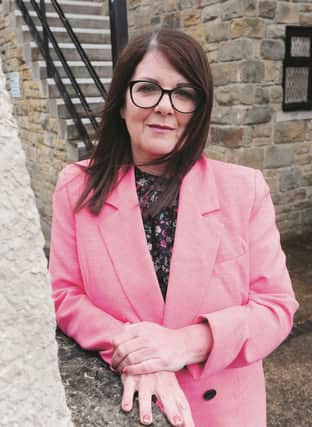Whistleblower Jayne Senior: Complaining to watchdog about Rotherham police "like battling the Mafia"


WHISTLEBLOWER Jayne Senior branded the police watchdog “a talking body” and “like the Mafia” after it upheld her complaint that senior officers had failed Rotherham children — but failed to name names or hold anyone to account.
Ms Senior (pictured and ex-Home Office researcher Dr Angie Heal filed a complaint in 2017 that “senior officers failed in their statutory responsibilities to protect children during the period relevant to three recent trials where 18 offenders were found guilty of non-recent abuse offences against children”.
The Independent Office for Police Conduct published the report of its investigation into police mishandling of CSE in Rotherham, Operation Linden, two weeks ago.
But Ms Senior was unhappy with the outcome of Operation Amazon, the inquiry relating to her complaint, saying: “If someone put in a complaint about me and it was investigated and upheld, I would lose my job and not be allowed to work with children again.
“Many of these officers have gone onwards and upwards.
“No-one has been named or made accountable.”
Ms Senior and Dr Heal said in a statement that the watchdog’s complaints procedure seemed “designed to find reasons why they should not investigate” and was “a process that protects reputations”.
Ms Senior told the Advertiser: “It felt like battling the Mafia \_ when you go for the top, everyone below protects them.”
Operation Amazon found defendants in the trials under Operation Clover were known to South Yorkshire Police but considered “low level drug dealers”.
IOPC scrutiny of their criminal records confirmed they had been jailed for “serious offences” between 2002 and 2006 and it was noted they had been “explicitly mentioned as exploiting young girls, being involved in supplying drugs and having access to firearms”.
But there was “no concerted and joined-up effort to tackle them”.
Ms Senior recalled attending a meeting in the early 2000s where some of the Clover defendants were dicussed in relation to CSE but “nothing happened”.
South Yorkshire Police was praised by inspectors in 2007 for its response to CSE but the IOPC said that “over a number of years, SYP had actionable intelligence which officers could have addressed and taken responsibility for” but there appeared to be a lack of any police officer “really taking ownership of the issue and driving forward solutions”.
Burglary and vehicle crime were given more priority, the watchdog said.
Ms Senior said she was glad details of Operation Amazon were out but was disappointed that when it was mentioned briefly in the overall report, reference to “senior officers” had been amended to “officers”.
The IOPC revealed most of the SYP officers covered by the complaint were retired and “not legally bound to assist us within our investigations”.
They admitted: “We contacted several people, including retired police officers, that worked in child protection and intelligence roles, who we thought could help with our investigation, but they would not engage with us and we could not force them to do so.”
Ms Senior called for reform of the watchdog, adding: “The IOPC needs to have power to compel people to take part \_— Ofsted has regulatory powers but the IOPC is just a talking body.
“They can make recommendations but not enforce them.”
IOPC director of major investigations, Steve Noonan, said: “Since the start of Operation Linden, the survivors we have spoken to have made it clear what they want is to see meaningful changes to policing that mean other people don’t have to suffer in the way they did.
“It has always been our aim to look collectively at these investigations to identify common themes and issues that need to be addressed at an organisational - or even national - level to ensure this happens.”
Mr Noonan said the IOPC was “not judge and jury” but individual failings had been addressed in the 14 cases where they were identified.
“A key focus has been on identifying systemic issues, so when these failings begin to form a pattern, we need to be looking at the failures of leadership that allowed this to happen,” he added.
“Our report exposes those shortcomings and we have made a series of recommendations we now hope will bring about the real and lasting changes survivors have been waiting to see.”
<\div>